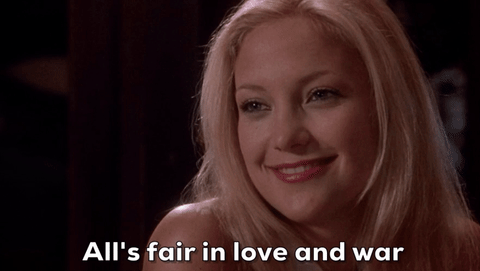It’s 2022, and while media, technology, and healthcare have all made strong development advancements, our relationships seem to suffer. Nevertheless, we have created a new type of relational status in the modern day called a “situationship.” Whether or not you’ve been in a situationship yourself, you at least definitely know of someone who has been in one in this day and age. Urban Dictionary’s most popular definition of a situationship is “Let’s just chill, have sex, and be confused on the fact that we are not together but have official emotions for each other.” Sounds about right.
You get everything you typically would in a relationship, without a label and sometimes without the official commitment to one another. While a situationship is meant to be light and easy, because of the lack of definition and rules, it becomes messier and more confusing. So, before getting into the practicalities and effects of a situationship, let’s first recognize the signs that you or someone you know may be in a situationship.
9 signs of a situationship
- There’s no natural progress or growth within the relationship.
- There is someone else involved.
- You only make last-minute or short-term plans.
- There’s no consistency in their effort levels.
- They always have excuses.
- You are not integrated into their life.
- You mostly small talk and dirty talk.
- They tell and show you they don’t want to get serious.
- There is no label.
Is a Situationship more convenient or confusing?
Gen Z’s attitudes towards dating and sex have evolved from the previous generations; we as a generation have decided to take a pragmatic approach to love and sex. Gen Z has found new ways of satisfying their needs for intimacy, companionship, and sex without a constituency in partnership. A situationship is meant to provide more freedom and autonomy. However, what happens when the grey area starts blending and confusion begins to arise?
You would think that with a game with no rules, everything would be smooth sailing; however, what happens when a game with rules becomes more anxious than convenient? It’s arguable that to participate in a situationship successfully, a part of you must be emotionally unavailable or not emotionally invested in the relations of the situationship. Since it can be difficult for two people’s priorities to align, a situationship can end poorly when each party is not on the same page about what they want out of the situation.
The rise of the “Chill Girl”
Society unintentionally created a whole new category for women to try to fit into: the chill girl category, which plays hand in hand with situationships. A girl who is considered to be self-sufficient, “low-maintenance,” and “chilled out” by her male counterparts, according to Wiktionary.org. This is to avoid the label as being “clingy,” “dramatic,” “difficult,” or “too much,” which seems to be a distasteful flavor for men as of late.
This is not to say that a girl can’t be easygoing and relaxed, but when a girl puts on this persona of being a “chill girl” to appeal to men, in reality, she is not a “chill girl.” That’s like Charlotte from Sex and the City pretending to be like Samantha in order to feel appreciated or valued by men.
What needs to be strongly considered is that you make yourself unintentionally small by pretending you are a chill girl. You communicate that being bothered over your needs and desires is not important enough to fuss over. The chill girl loves a situationship. It’s easy and smooth, and she gets to be independent. But that doesn’t mean it’s for everyone and with the rise of situationships, the option to not be a “chill girl” seems only to be minimized with each day that passes.
What to do if you don’t want to be in a situationship?
Well, frankly, I feel that no matter what we do, sometimes life has a funny way of working out, and you may find yourself in a situationship, even if you don’t intend to. However, there are a few measures you could take to do everything you can on your end not to allow it to happen.
First, make sure you are sure honest with yourself about what you want out of your partner or someone you are intimately involved with, because to build a strong framework for yourself and your relationships, your foundation must be secure first. It would be best to determine what would make you happy and fulfilled. Once you determine that, you can begin to live a life that surrounds those needs. Don’t settle for a half-baked effort. Understand that if someone is truly serious about you, you wouldn’t need to question what is happening on some level.
Secondly, you must understand everything you just let slip by and brush off even though it bothers you— those things are things you have control over. You must either voice your opinion and find a solution or leave the situation. You and only you have the power to say, “enough is enough; I don’t want to be present for this anymore because it doesn’t make me feel good.”
Third, be kind to yourself. This one may seem confusing, but by being kind and gentle with yourself and your soul, you give yourself the space to appreciate yourself. It’s not your fault that someone doesn’t want to be in a relationship and wants a situationship. However, being kind to yourself means treating yourself with kindness and saying it’s okay that this person doesn’t want the same things I do. It doesn’t have anything to do with me, but I know my heart yearns for more than a situationship.
Shift the perspective
Regardless, in today’s age, this phenomenon is known as the modern-day love story. Instead of a Romeo and Juliet love story, we get a “wyd?” and “are you up?” This indicates a shift in dating trends and reframes how many young people may approach love, sex, and relationships moving forward— embracing a middle ground of convenience and a beneficial transactional trade between two parties. However, those who do not want to participate in this cultural dating trend need to learn how to grow to say, “No, I want a real love story, not this.”




